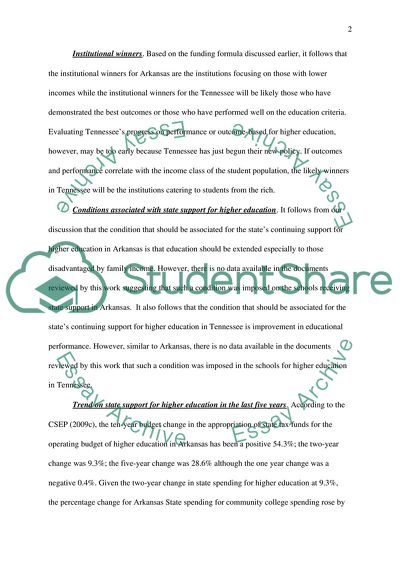Cite this document
(Comparing Arkansas and Tennessee in Financing Higher Education Report Example | Topics and Well Written Essays - 1500 words - 1, n.d.)
Comparing Arkansas and Tennessee in Financing Higher Education Report Example | Topics and Well Written Essays - 1500 words - 1. https://studentshare.org/education/1765364-two-state-comparison-finance-of-higher-education
Comparing Arkansas and Tennessee in Financing Higher Education Report Example | Topics and Well Written Essays - 1500 words - 1. https://studentshare.org/education/1765364-two-state-comparison-finance-of-higher-education
(Comparing Arkansas and Tennessee in Financing Higher Education Report Example | Topics and Well Written Essays - 1500 Words - 1)
Comparing Arkansas and Tennessee in Financing Higher Education Report Example | Topics and Well Written Essays - 1500 Words - 1. https://studentshare.org/education/1765364-two-state-comparison-finance-of-higher-education.
Comparing Arkansas and Tennessee in Financing Higher Education Report Example | Topics and Well Written Essays - 1500 Words - 1. https://studentshare.org/education/1765364-two-state-comparison-finance-of-higher-education.
“Comparing Arkansas and Tennessee in Financing Higher Education Report Example | Topics and Well Written Essays - 1500 Words - 1”. https://studentshare.org/education/1765364-two-state-comparison-finance-of-higher-education.


